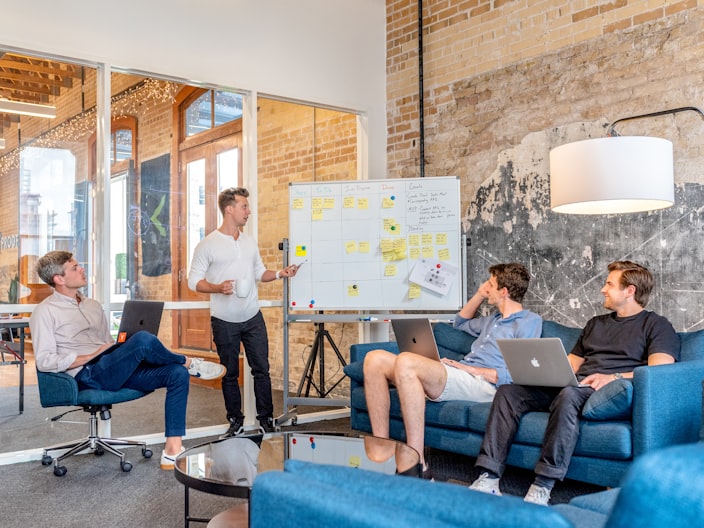Innovative AI Solutions
Discover cutting-edge artificial intelligence solutions to simplify tasks, streamline processes, and drive innovation in your organization.





Discover cutting-edge artificial intelligence solutions to simplify tasks, streamline processes, and drive innovation in your organization.





Empowering businesses with cutting-edge AI solutions.
By purchasing aibuildernet.com, you can tap into the lucrative world of online business with endless opportunities for growth, such as featuring tutorials, product reviews, and community forums dedicated to DIY home improvement and construction projects.
“Our mission at aibuildernet.com is to provide a platform for artificial intelligence enthusiasts and professionals to connect, learn, and collaborate. We aim to foster a community that advances AI knowledge, skills, and innovation for the betterment of society.”

By purchasing the aibuildernet.com domain name, you are securing a valuable asset that positions you as a leading authority in the field of AI and technology. Building a website on this domain will help you establish a strong online presence, attract more visitors, and drive traffic to your business or blog. With a dedicated platform on aibuildernet.com, you can showcase your expertise, share thought leadership content, and connect with a broader audience interested in AI development.
Secure Your Domain Name and Build Your Dream Website Today
Frequently asked questions about Empowering businesses with cutting-edge AI solutions..
Chatbots: AI-powered chatbots can be used to improve customer service by providing instant responses to inquiries and resolving issues efficiently.
Predictive analytics: Businesses can leverage AI to analyze large datasets and predict future trends, customer behavior, and market changes, helping them make informed business decisions.
Personalized recommendations: AI algorithms can be used to analyze customer preferences and behavior to provide personalized product recommendations, enhancing the customer experience and increasing sales.
Image and video recognition: AI solutions can be used to automatically tag, categorize, and analyze images and videos, providing valuable insights for businesses in industries such as retail, healthcare, and security.
Fraud detection: AI-powered systems can detect anomalies and patterns in transaction data to identify potential fraudulent activities, helping businesses enhance their security measures.
AI solutions can help businesses automate repetitive tasks, allowing employees to focus on more strategic projects. Through data analysis, AI can provide valuable insights that can inform decision-making and optimize processes. By predicting patterns and trends, AI can help businesses anticipate and prevent issues before they arise. AI can also personalize customer interactions, leading to improved customer satisfaction and retention. Overall, AI solutions can streamline operations, reduce costs, and drive overall efficiency and productivity for businesses.
The main benefits of implementing AI solutions in business operations include increased efficiency through automation of repetitive tasks, improved decision-making through data analysis and pattern recognition, enhanced customer experience through personalized interactions, cost savings through predictive maintenance and risk management, and ultimately, the ability to stay competitive in a rapidly evolving market landscape.
Businesses can ensure the ethical use of AI technologies in their operations by implementing clear guidelines and policies for the development and deployment of AI systems. It is crucial to prioritize transparency and accountability in all AI algorithms and decision-making processes. Regular audits and assessments should be conducted to identify and address any biases or ethical concerns in AI technologies. Additionally, businesses should provide proper training to ensure that employees understand the ethical implications of using AI technologies in their work. Collaboration with ethicists, regulatory bodies, and other stakeholders can also help ensure responsible and ethical AI use.
Some common challenges businesses encounter when implementing AI solutions include lack of understanding of AI technology, difficulty in sourcing and preparing high-quality data, ensuring data privacy and security compliance, integration with existing systems and processes, and managing the cultural change required for successful adoption of AI technology across the organization. Implementing AI solutions also requires a significant investment in infrastructure, talent, and ongoing maintenance and optimization.
Aibuildernet.com website statistics:
Views today / week / total:
... / ... / ...